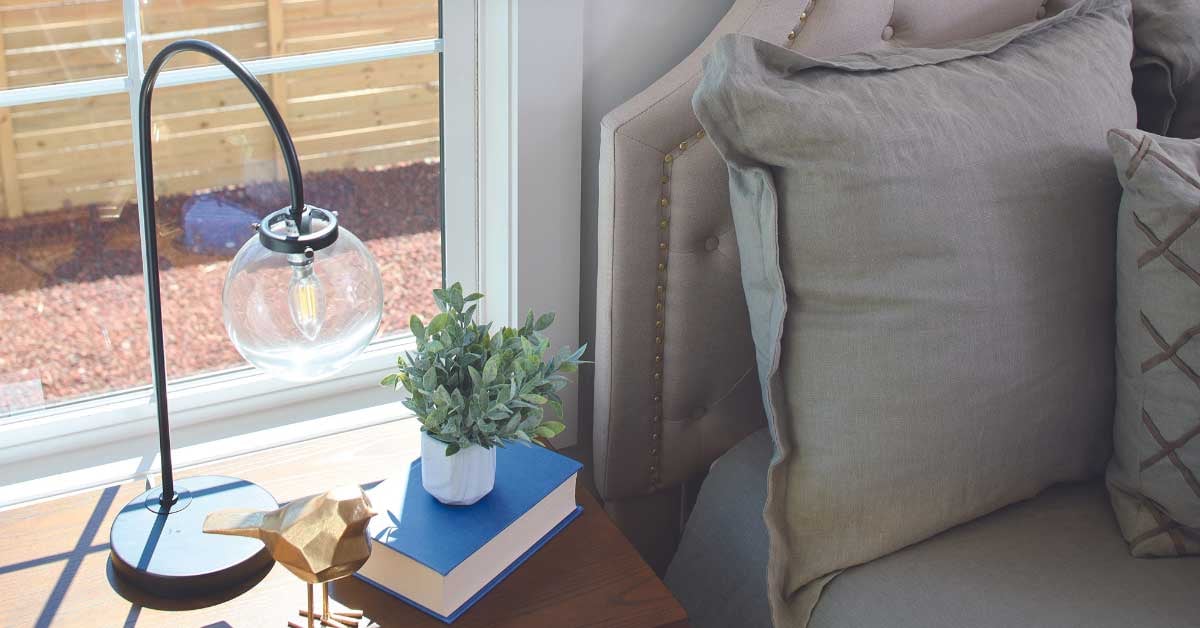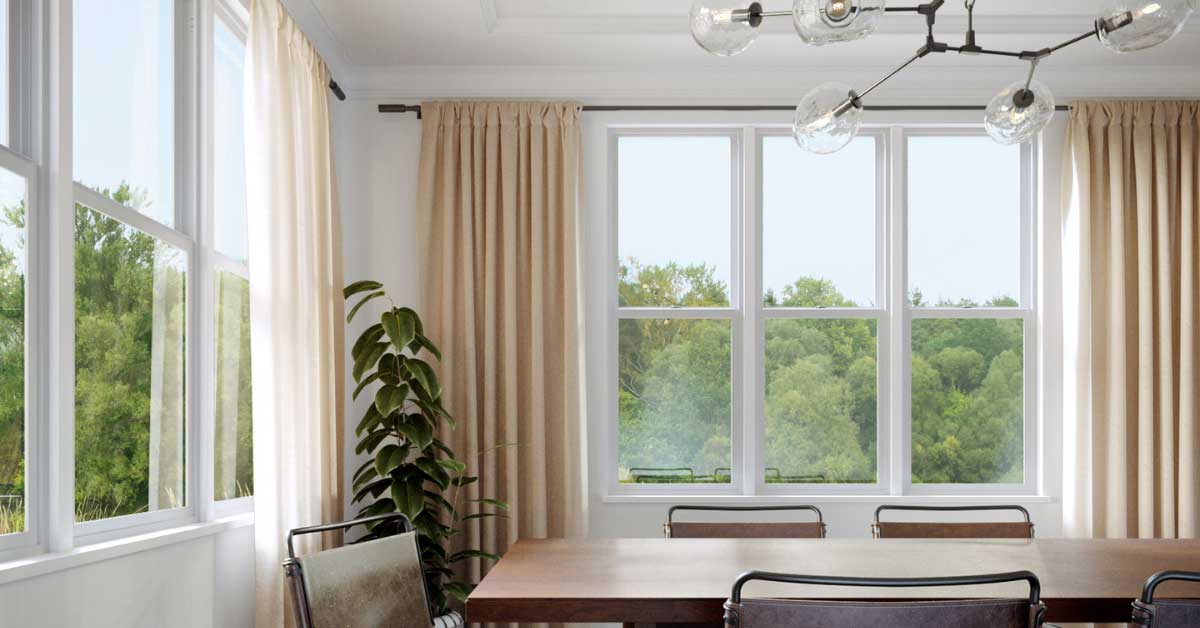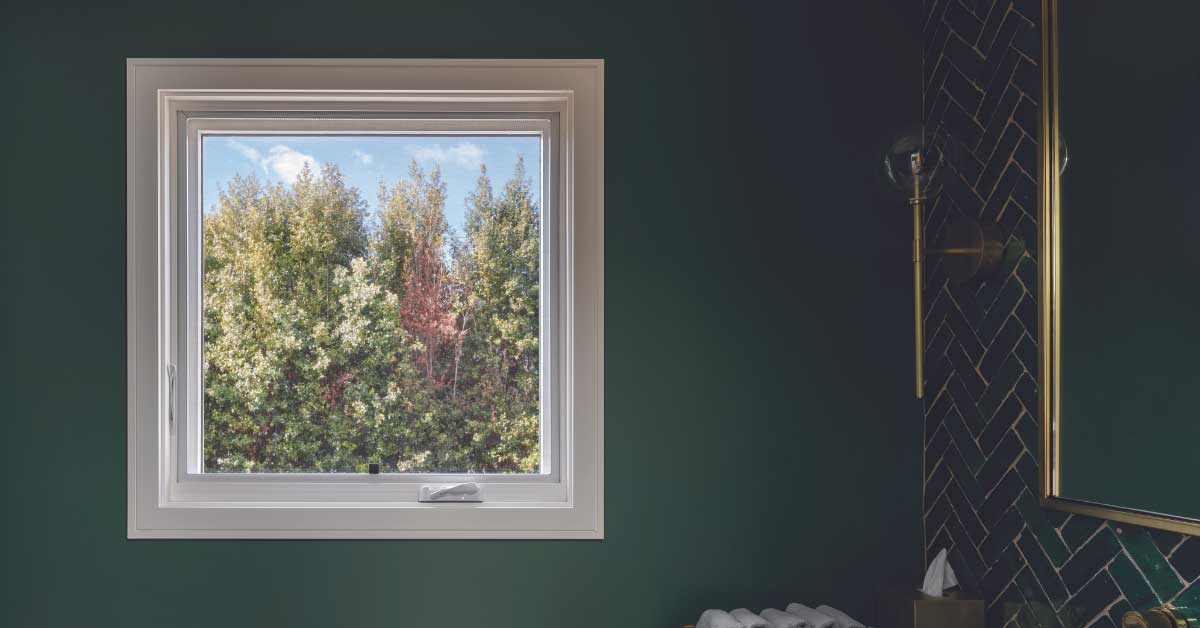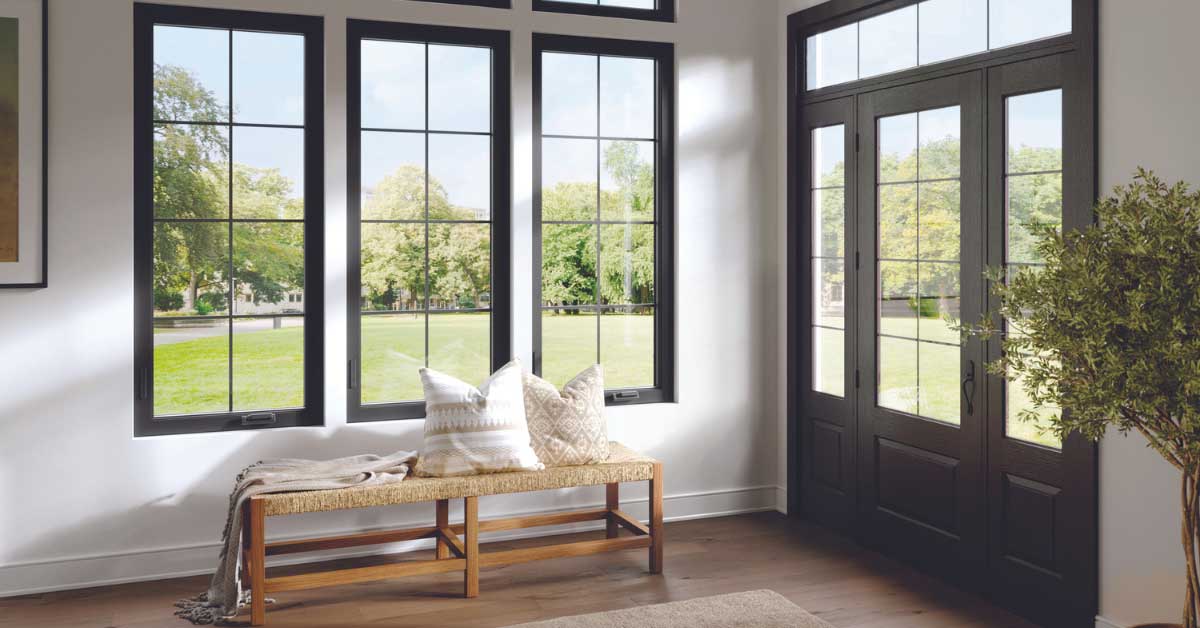Sometimes we take our windows for granted. It’s only natural—they’re just one facet of our daily lives that we’ve learned to look past or, more accurately, through. But, although we might forget them, windows perform a crucial function—they protect us from rain, wind, snow, heat, cold, insects and critters.
Windows are an important investment. They help keep our home cozy and comfortable while adding style and curb appeal. Fortunately, a high-quality newer window can last 20 years or more. But that doesn’t mean we can ignore our windows for decades—windows call for regular maintenance and assessment.
After years of battling Canada’s challenging climate, our windows are sure to need some attention. Windows that we have long ignored might call to us with drafts, whistling wind and condensation between the panes of glass.
It’s difficult to say your home’s windows will last a set amount of time—15, 20 or 25 years. In reality, a number of factors can affect the longevity of your windows, including the types of materials used in the window design, how well they’ve been maintained and the severity of the weather.
“Consider replacing windows if they have single panes of glass, were installed before the mid-90s without Low-E, or show signs of wear and compromised insulation,” advises Russ Miller, JELD-WEN of Canada’s National Account Manager.
The effect of materials on window longevity
When weather fluctuates from hot to cold, and then back again, window frames repeatedly expand and contract. This can negatively impact the relationship between the frame and the glass, and ultimately reduce the longevity of your windows.
Older window frames made from wood, vinyl and aluminum may be more susceptible to the negative effects of expansion and contraction. Those of us who grew up in older homes might have experienced the challenges of sliding open a single hung vertical sliding window with a warped wooden frame. No fun for your back.
Fortunately, window design has made leaps and bounds in the last couple of decades. JELD-WEN of Canada crafts windows to suit different tastes and budgets, including durable options made from vinyl and aluminum-clad vinyl.
When selecting the right windows for your home, you’ll want to match your vision and your house’s architectural style. These considerations will impact the frame materials that you choose, whether vinyl or hybrid.
Vinyl windows are an affordable, low-maintenance option with a clean, modern look. They are built to face up to temperature extremes and provide excellent insulation. With a range of interior and exterior options and colours, you’ll get energy efficiency and a style tailored to your unique vision.
JELD-WEN of Canada’s DF Collection vinyl windows offer the latest in window technology—a combination of energy efficiency, home comfort and sleek styling. They have advanced insulating features so they are resistant to weather extremes. DF windows also boast long-lasting function and eye-catching design options to suit any style of home.
Aluminum-clad vinyl windows, like JELD-WEN’s DF Hybrid Windows, give you the convenience of an all-vinyl frame with a sleek extruded aluminum exterior. You’ll get increased durability and protection, while enjoying a stylish, contemporary look.
Windows require maintenance
It’s not a case of install them and forget them, as much as we might want to. Windows require maintenance and evaluation to ensure they continue to protect your home from the elements. Any wear and tear on glass and frames can reduce energy efficiency, increasing your heating and cooling costs.
Perform an annual inspection of your home’s interior and exterior walls and windows. Look for obvious cracks, gaps, rust and common issues that might reveal window frame damage. It could be cold drafts, condensation, windows that are difficult to open and close or an increased number of insects in your house.
Be sure to check for areas where caulk or wood filler is needed to repair cracks and gaps. Seal air leaks around windows and doors inside the home with weather strips. Re-paint and seal any painted frames that have cracked or peeling paint.
“In older homes, energy efficiency isn’t just about the window itself but preventing heat from escaping directly outside,” Miller says. “Address rotting wood frames and seal failures, knowing that a combination of these factors strengthens the case for replacement, or at the very least, a glass upgrade.”
If you notice that your windows have become cloudy, this can mean that the pressure of expansion and contraction on the window unit has broken down the weathertight seal, allowing insulating gas to leak out and moisture to get in between the glass panes (glazing) and into your home. It’s not aesthetically pleasing and it’s also a sign that your window is no longer energy efficient.
What if my windows are just too old?
If in fact your windows are just too old, the good news is you get to choose some new windows. Consult your window expert to select windows that are stylish, energy efficient and right for your budget.
Today’s new window options address some of the challenges of expansion and contraction with high-quality spacers that relieve the pressure on other fixed window elements. They also boast improved Low-E (low-emissivity) glass coatings to help keep your home warm in the winter and cool in the summer.
During warmer months, Low-E will repel UV rays that cause excess heat, helping to keep your home comfortably cool. In the winter, Low-E absorbs UV rays, keeping your home warm. Your window advisor can tell you which levels of coating are right for the different windows in your home, depending on which direction they face and other considerations.
JELD-WEN also offers insulating glass options to suit different environmental conditions, regardless of your home’s location or architecture. Single panes of glass—found in many old windows—are not a suitable option if you’re looking for environmental efficiency and home comfort.
Windows don’t use energy, but they can be a major source of heat loss in your house. That’s why you might notice that you get chilled sitting close to a window in winter. For better home comfort, energy efficiency and reduced energy costs, look for ENERGY STAR®-qualified windows, which feature Low-E glass, argon gas in sealed units, advanced technology spacer bars and improved air tightness.
Another feature to look for is dual pane glass (two glass panels with a sealed space in between) or triple pane (Tri-Pane) windows (three glass panels separated by two half-inch spaces). Tri-Pane glass is your best bet in extreme climates, as the interior panes reduce radiant heat and condensation, for more cold-weather humidity and reduced air dryness. JELD-WEN’s ENERGY STAR-certified Northern Tri-Pane Collection is the gold-standard for long-term savings and comfort.
As much as you might hope to put it off, upgrading to new windows can actually save you money in the long run, offering energy savings and a refreshed appearance that boosts both curb appeal and your property values.
Look for a great warranty
When shopping for new windows, be sure to check out the warranties on the glass and window frames. JELD-WEN products come with an industry-leading warranty that protects against defects in material and workmanship, so you can enjoy years of comfort and energy savings.
Check out our roundup of grants and rebates that could save you some of your hard-earned money when purchasing new windows.
Explore Related Posts
















